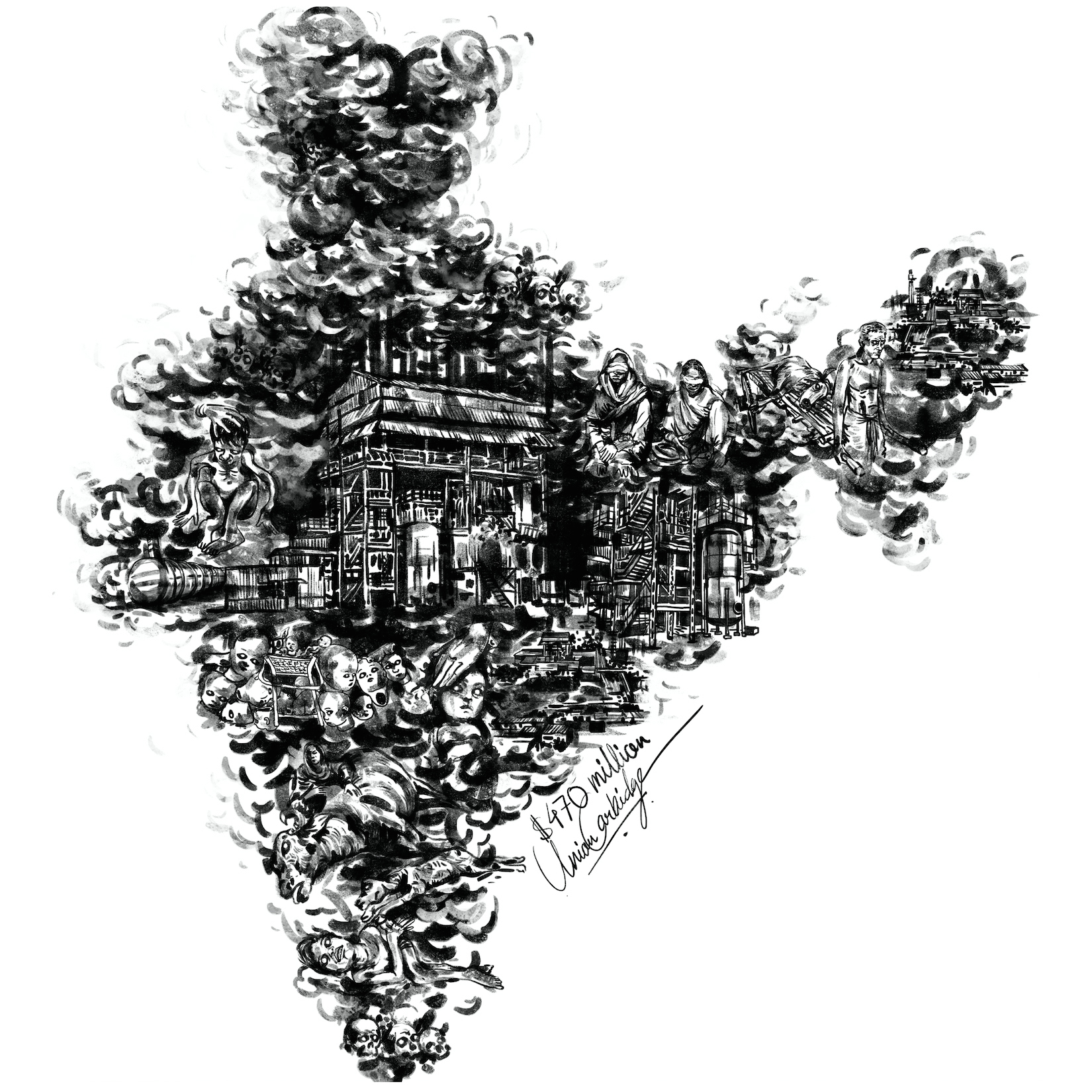
1989 | Mayur Mengle
14 February – Union Carbide agrees to pay USD $470 million to the Indian government for damages it caused in the 1984 Bhopal Disaster. The Bhopal disaster, also referred to as the Bhopal gas tragedy, was a gas leak incident in India, considered the world’s worst industrial disaster. It occurred on the night of 2–3 December 1984 at the Union Carbide India Limited pesticide plant in Bhopal, Madhya Pradesh. Over 500,000 people were exposed to methyl isocyanate gas and other chemicals. The toxic substance made its way into and around the shanty towns located near the plant. Estimates vary on the death toll. The official immediate death toll was 2,259. The government of Madhya Pradesh confirmed a total of 3,787 deaths related to the gas release. A government affidavit in 2006 stated that the leak caused 558,125 injuries, including 38,478 temporary partial injuries and approximately 3,900 severely and permanently disabling injuries. Others estimate that 8,000 died within two weeks, and another 8,000 or more have since died from gas-related diseases. The owner of the factory, UCIL, was majority owned by UCC, with Indian Government-controlled banks and the Indian public holding a 49.1 percent stake. In 1989, UCC paid $470m ($907m in 2014 dollars) to settle litigation stemming from the disaster.